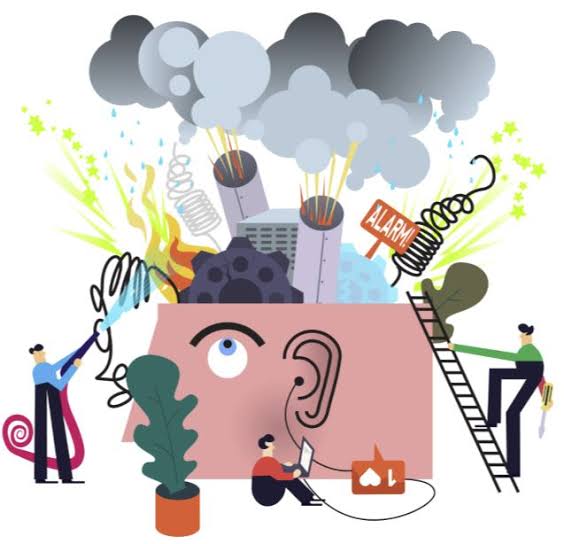#mentalhealth
#MentalHealthAwarenessMonth
Avoidant Personality Disorder (AvPD) is a mental health condition characterized by pervasive feelings of social inhibition, low self-esteem, and a fear of criticism or rejection.
Some key points about Avoidant Personality Disorder:
#MentalHealthAwarenessMonth
Avoidant Personality Disorder (AvPD) is a mental health condition characterized by pervasive feelings of social inhibition, low self-esteem, and a fear of criticism or rejection.
Some key points about Avoidant Personality Disorder:

🌳 Persistent social inhibition: Individuals with AvPD tend to avoid social situations and interactions due to a fear of negative evaluation or judgment by others.
🌳 Hypersensitivity to rejection: People with AvPD are highly sensitive to perceived rejection or criticism, even in situations where it may not be present or intended.
🌳 Feelings of inadequacy: Individuals with AvPD often have a chronic sense of inadequacy, low self-esteem, and a belief that they are socially inept or inferior to others.
🌳 Avoidance of new relationships: Due to fear of rejection or embarrassment, those with AvPD may have difficulty forming new relationships or establishing close connections.
🌳 Reluctance to take risks: People with AvPD tend to avoid new activities, opportunities, or challenges that may expose them to judgment or potential failure.
🌳 Avoidance of work or school-related activities: Fear of negative evaluation can lead individuals with AvPD to avoid situations that involve performance evaluation or significant interpersonal contact, such as work or school activities.
🌳 Self-imposed social isolation: Individuals with AvPD may isolate themselves socially, limiting their interactions with others to minimize the risk of rejection or embarrassment.
🌳 Emotional restraint and difficulty expressing oneself: People with AvPD may find it challenging to express their emotions or share personal information, often fearing judgment or rejection.
🌳 Intense longing for social connection: Despite avoidance behaviors, individuals with AvPD often experience a deep desire for social acceptance and connection.
🌳 Fear of intimacy and close relationships: Due to the fear of rejection or vulnerability, those with AvPD may struggle with forming and maintaining intimate relationships.
🌳 Preoccupation with negative self-judgment: Individuals with AvPD may have a tendency to excessively focus on perceived flaws, shortcomings, or past social failures.
🌳 Increased risk of comorbid conditions: AvPD is commonly associated with other mental health conditions, such as depression, anxiety disorders, and substance use disorders.
🌳 Impact on daily functioning: AvPD can significantly impact various areas of life, including work, relationships, and overall quality of life.
🌳 Long-standing pattern of behavior: Symptoms of AvPD typically emerge in early adulthood and persist over time, although they may vary in intensity.
🌳 Treatment options: Psychotherapy, particularly cognitive-behavioral therapy (CBT) and group therapy, are commonly used to help individuals with AvPD develop coping strategies, improve social skills, and address underlying fears and beliefs.
@threadreaderapp unroll
• • •
Missing some Tweet in this thread? You can try to
force a refresh

 Read on Twitter
Read on Twitter








